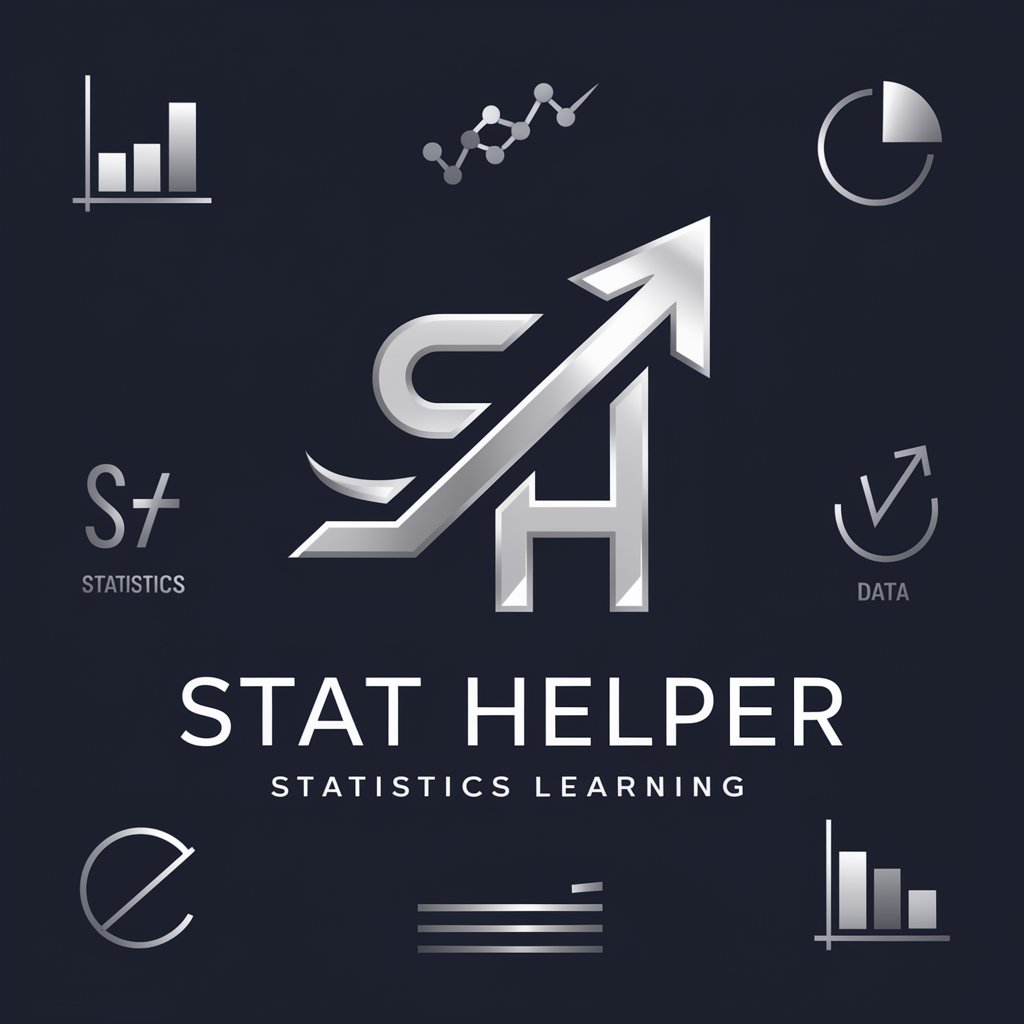
SQL Helper - Database Design & Query Tool

Hello! Ready to tackle some SQL challenges together?
AI-powered SQL optimization and design.
Can you help me design a database schema for...
How do I write an SQL query to retrieve...
What indexes would you suggest for optimizing...
I need to generate a report that includes...
Get Embed Code
Introduction to SQL Helper
SQL Helper is a specialized AI tool designed to assist developers in creating, optimizing, and managing SQL databases. It functions as a conversational assistant that gathers details about a developer's data requirements and provides custom solutions for database schema design and SQL query creation. The purpose of SQL Helper is to streamline the database development process, offering expert guidance on structuring data, writing efficient queries, and suggesting indexes for performance optimization. For example, if a developer is working on a web application that requires a user management system, SQL Helper can help design the database schema for storing user information and craft SQL queries to retrieve, update, or delete user records efficiently. This not only saves time but also ensures that the database is designed with best practices in mind, enhancing security and performance. Powered by ChatGPT-4o。

Main Functions of SQL Helper
Database Schema Design
Example
Creating a schema for an e-commerce platform, including tables for users, products, orders, and payments.
Scenario
A developer is building an e-commerce website and needs a database schema that supports user registration, product listings, order processing, and payment transactions. SQL Helper guides the developer through defining entities, relationships, and key constraints to ensure data integrity and facilitate efficient data retrieval.
Writing SQL Queries
Example
Crafting a query to find the top 10 best-selling products in the last month.
Scenario
For a business intelligence report, a developer needs to identify the most popular products. SQL Helper provides a query that not only fetches this information but also explains how to use JOINs and aggregate functions like COUNT and SUM to calculate sales figures, offering insights into query optimization techniques.
Suggesting Indexes for Optimization
Example
Advising on the creation of an index on the 'user_id' column in the 'orders' table to speed up order retrieval for users.
Scenario
When a developer notices slow performance in fetching user order histories, SQL Helper suggests creating an index on the 'user_id' column of the 'orders' table. This reduces query execution time by allowing the database management system to quickly locate orders for a specific user, improving the application's responsiveness.
Security Best Practices
Example
Recommendations for secure password storage, including hashing and salting techniques.
Scenario
While designing a user authentication system, a developer asks for best practices in storing passwords. SQL Helper recommends using industry-standard hashing algorithms and salting to enhance security, explaining how these practices protect against brute-force attacks and data breaches.
Ideal Users of SQL Helper Services
Application Developers
Developers building web or mobile applications that interact with SQL databases. They benefit from SQL Helper by receiving guidance on database schema design, query optimization, and security best practices, which is crucial for application performance and user data protection.
Database Administrators (DBAs)
DBAs responsible for the maintenance, optimization, and security of database systems. SQL Helper can assist them in identifying performance bottlenecks, suggesting indexing strategies, and implementing security measures to safeguard the database.
Data Analysts
Professionals who analyze data stored in databases to generate insights. SQL Helper can help them craft complex SQL queries efficiently, allowing for effective data manipulation and extraction for reporting purposes.

How to Use SQL Helper
1
Visit yeschat.ai for a free trial without needing to log in, and access is not limited to ChatGPT Plus subscribers.
2
Define your database needs by identifying the types of data you wish to store, manage, and query. This includes understanding your data's structure, relationships, and how you plan to use it.
3
Consult SQL Helper for schema design by providing details about your data. Include information on data types, relationships, and any specific constraints or indexes you're considering.
4
Use SQL Helper to write and optimize SQL queries based on your requirements. Share the objectives of your queries, including any specific reporting needs or data manipulation tasks.
5
Leverage SQL Helper's advice on best practices for database security, performance optimization, and efficient data management. Apply these insights to enhance your database's effectiveness and safety.
Try other advanced and practical GPTs
GDPR Expert
AI-Powered GDPR Guidance

Insight Navigator
Demystifying Data Science, AI-Powered Insights

Selenium Sage
Elevate Your Selenium Testing with AI

FL Studio
Empower Your Sound with AI-Driven Music Creation

Blog Writer
Empowering Your Words with AI

Valere | DiscoveryGPT
Transforming documents into actionable insights.

Code Librarian
Streamlining Library Selection with AI

Deutsch mentor
Empowering German Fluency with AI

Personality Test
Discover Yourself with AI-Powered Quizzes

Healer Chatbot
Empowering mental wellness with AI

Firebase Assistant
AI-Powered Firebase Solutions Simplified

protein-designer
Designing the Proteins of Tomorrow

Frequently Asked Questions about SQL Helper
What is SQL Helper?
SQL Helper is an AI-powered tool designed to assist developers in designing database schemas, writing efficient SQL queries, and optimizing database performance through tailored advice and solutions.
Can SQL Helper design a database schema from scratch?
Yes, SQL Helper can guide you through designing a database schema from scratch. Provide details about your data and how you intend to use it, and SQL Helper will suggest an optimal structure, including tables, relationships, and indexes.
How does SQL Helper improve SQL query performance?
SQL Helper suggests optimizations for SQL queries by reviewing your query objectives and data structure. It advises on indexing, query structure, and best practices to enhance performance and efficiency.
Can I use SQL Helper for database security advice?
Absolutely. SQL Helper offers recommendations on implementing security best practices in your database design, such as data encryption, secure access controls, and safe SQL practices to prevent SQL injection attacks.
Is SQL Helper suitable for beginners in database management?
Yes, SQL Helper is designed to be accessible for users at all levels, including beginners. It provides clear explanations and justifications for its suggestions, helping users understand the rationale behind database design and query optimization.






